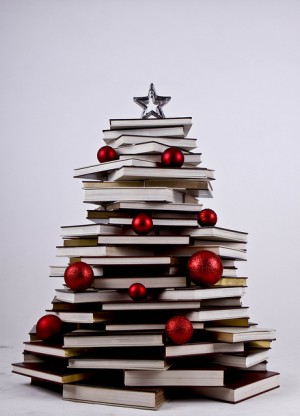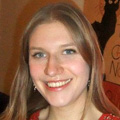You have no items in your cart. Want to get some nice things?
Go shopping
At a King’s Place Words on Monday event at the beginning of this month, several of the UK’s most prestigious book reviewers came together to share their books of the year.
Their choices were eclectic, from The Fishing Fleet by Anne de Courcey, a non-fiction exploration of the colonial practice of sending young ladies out to India to find suitable husbands, to Edna O’Brien’s autobiography Country Girl, described by one speaker as ‘the memoir as work of art’. Each of the speakers had their own ideas about 2012’s outstanding books, but they all agreed on one thing – well-written reviews, and recommendations from trusted sources, still matter.
With that in mind, here are some more of their recommendations, as well as picks from the team at Litro, to give you a few last ideas for your 2012 to-read pile.
Nicholas Lezard, book reviewer for The Guardian
The Last of the Voystyachs by Diego Marani
Lezard’s Guardian rave review of Marani’s last translated work, New Finnish Grammar, caused an unprecedented rush on indie bookshops: for weeks afterwards, the book was sold out everywhere you went. Even more unusually, New Finnish Grammar was more than worthy of the hype, and so the fact that publishers Daedalus have now released a second Marani translation, The Last of the Voystyachs, should be cause for celebration. Lezard describes this novel as being a compelling – if unlikely – mix of murder mystery and linguistic thriller. Like New Finnish Grammar, it shouldn’t work and yet it does, and once again Lezard’s enthusiasm for the book is infectious. You can read his full written review of The Last of the Voystyachs here, on the Guardian website.
Harriett Gilbert, presenter of A Good Read and The Strand programmes on the BBC
The Dinner by Herman Koch
Parenthood, and what a blindly loving parent will excuse from their misbehaving child, is an immensely topical subject, and it’s one that Herman Koch tackles in his novel The Dinner. Taking place over the course of a single evening and following a dinner between two sets of parents, the proceedings seem banal at first, but they are slowly revealed to be merely the cover for a discussion of shocking past events. The Dinner is a horrifying, troubling yet immensely funny satire on parenthood and the façade of the happy family. Listen to Gilbert’s Strand interview with Koch here.
Boyd Tonkin, Literary Editor of The Independent
Spitalfields Life by ‘The Gentle Author’
The Spitalfields Life blog has been interviewing residents of the borough since 2009, and this is the print version of the internet sensation. Blog-to-books are a common phenomenon, although they often don’t work in their new format. According to Tonkin, though, this is not only a successful re-issue of the website’s material, but ‘the most illuminating book on London published this year’. Its delightfully deadpan tone and the distinctive personality of its anonymous narrator has Tonkin comparing it to W. G. Sebald’s Austerlitz – a big claim, but one that he stands behind. Read Tonkin’s review of Spitalfields Life on The Independent website here.
Katy Darby, novelist and Litro’s Story Sunday editor
The Story of English in 100 Words by David Crystal
It’s too dangerous for me to even think of picking a novel or short story collection for my book of 2012, so I’ve plumped for The Story of English in 100 Words. I saw Professor Crystal give a talk about language at the Sevenoaks Literary Celebration earlier this year, and his excerpts from this fascinating little book sold me on it completely. Crystal selects and explains 100 English words which are extraordinary or important in some way, from ‘Roe’ (a deer) – the first written word in English, carved in runes on an ankle-bone – to ‘Twittersphere’, via ‘cunt’, ‘yogurt’, ‘gotcha’ and ‘doable’ (who knew the last one was coined in the 15th century?). This is both an enjoyable book to dip into and one you can read straight through, following the evolution of our language as you go. It also manages to walk the fine line between academic rigour and accessibility: no-one can say that world-renowned linguistic expert Crystal doesn’t know his stuff, yet his style is very straightforward, readable and engaging, appealing to the armchair etymologist in all of us. Well worth buying if only to discover what ‘weasel words’ and ‘nonce-words’ are – and to impress your family over the turkey with the correct definition of ‘fopdoodle’.
Robin Stevens, Assistant Literary Editor of Litro Online
The Snow Child by Eowyn Ivey
The Snow Child is the book I read this year that I most wish I had written. From its first page, a gorgeous, gripping description of a midnight walk to a frozen river that’s supposed to be the character’s last, it’s an extraordinary read. The tale of Jack and Mabel, an aging couple in the Alaskan wilderness who are desperate for a child, The Snow Child is a magical tale that has a solid grounding of pragmatism. Beautiful without being over-sentimental, filled with a childlike sense of wonder that’s coupled with a mature understanding of the world, The Snow Child is a multi-layered retelling of the ‘Snow Maiden’ group of fairy tales that will keep you questioning what’s real and what’s imagination – and if imagination can ever be its own form of reality. As I said in my review of it earlier in the year, The Snow Child is really all about how exceptional everyday life can be. With the Alaskan landscape as a fantastic, fierce backdrop to the action, and charming, true-to-life central characters playing out Ivey’s weird plot, The Snow Child more than deserves the awards it’s won this year.
Sophie Lewis, Contributing Editor of Litro and Editor at Large, And Other Stories
Lightning Rods by Helen DeWitt
Helen DeWitt’s novel Lightning Rods made my year. Hopeless vacuum-cleaner salesman Joe’s self-reassuring platitudes and obsessive, even meticulous, sexual escapism make an unlikely recipe for business idea of the century when, for once, Joe decides to act on his own ideas. DeWitt’s ear for business-world talk, particularly for the murky area where it shades into new-agey self-help, is flawless, and Joe’s idea is dazzlingly naughty. No one else writes like this. And I’m heartened to know that this is only one shoot to have reached publication out of a rhizomatous tangle on which I believe DeWitt is working – so there should be more like this to come. I cannot apologise for being Lightning Rods’ publisher, but I should say that New Directions, in the US, found her first.
Emma Osment, Litro blogger
Born to Run by Christopher McDougall
My taste in literature has veered towards the nonfiction this year. Born to Run tells the story of endurance runner McDougall’s quest into the Mexican mountains to find out more about the mysterious Tarahumara, or ‘running people’. People have attempted to ‘civilise’ them by bringing them into well-known ultramarathons as expert runners. But are these just PR stunts, and can they ever succeed? I love this book for so many reasons. There are the vividly drawn characters and stunningly depicted scenery, especially during McDougall’s initial quest for the mysterious ‘Caballo Blanco’, a man friendly with the Tarahumara who runs freely around the wilderness. Then there’s McDougall’s reasons for his quest – that no matter how much hi-tech running gear he throws at himself, he is still crippled with injuries. There’s currently a keen debate among runners about whether expensive supportive running shoes help or hinder in protecting against injuries, so I was fascinated to read about McDougall’s response to that particular dilemma. The book climaxes when the Tarahumara collide with the world of professional long-distance running as they run in an ultramarathon organised by Caballo Blanco, a panoramic ride through stunning scenery that shows true human grit and determination. Reading about people who can run upwards of fifty miles in a single day makes you want to go out and put one foot in front of the other yourself.
Emily Cleaver, Litro Lab Podcast Producer
Boneland by Alan Garner
Boneland was my book of the year before I’d even read it. There are some books we love as kids that become as vivid to us as actual memories. Garner’s The Weirdstone of Brisingamen and The Moon of Gomrath, breathless mixes of adventure, folklore and fantasy, were those books for me. We long for the chance to get back to those imagined landscapes, but re-reading the book as an adult won’t do it – the baggage we take with us makes the trip very different. So it was hugely exciting to hear that Alan Garner was finally completing the trilogy after half a century. And better, Boneland isn’t a children’s sequel. Garner is going back older and wiser, revisiting his lost places, baggage and all. Boneland is a strange and beautiful book. Its language is intense, dense, like incantation in places. It’s often confusing, mysterious, but it shouts to be read. The plot follows Colin, now an adult deeply scarred by a repressed childhood trauma, as he journeys to understand his own story. Then there’s the Watcher, who paints pictures on rock and dances to keep the stars moving. Returns to the past are perhaps necessarily mournful. In the end, there is no way back. Everything is changed – more meaningful, more hidden. What is lost can never really be found, but this search takes us somewhere new.

About Robin Stevens
Robin started out writing literary features for Litro and joined the team in November 2012. She is from Oxford by way of California, and she recently completed an English Literature MA at King's College, London. Her dissertation was on crime fiction, so she can now officially refer to herself as an expert in murder (she's not sure whether she should be proud of that). Robin reviews books for The Bookbag and on her own personal blog, redbreastedbird.blogspot.co.uk. She also writes children's novels. Luckily, she believes that you can never have too many books in your life.




